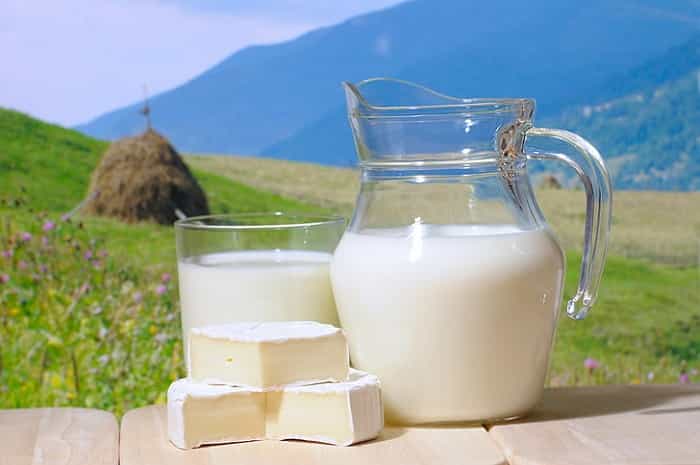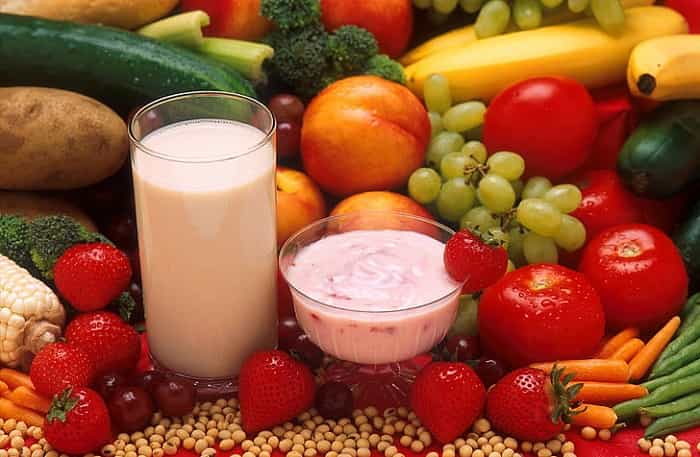Factory farming and industrial processing mean that many widely available protein sources are robbed of nutrients and laden with toxins. Meat and dairy products can contain traces of hormones and antibiotics, pesticides and chemical fertilizers may taint nuts and legumes, and fish can be contaminated with mercury. Clean sources of protein are harder to come by, but small organic farms are helping to meet the public demand for natural, ethically produced, wholesome food.
Here are twelve sources of protein to enrich your diet.
Table of Contents
1. Grass-fed Beef

Meat from cattle grazing on pastureland is more nutritious than meat from cows fattened on grain in industrial feedlots. It is high in stearic acid, which has been shown to raise HDL , the ‘good cholesterol. It also contains the recommended balance of omega-3 and omega-6 fatty acids. In addition, meat from grass-fed ruminants is the best source of conjugated linoleic acid or CLA , a type of fat that has been shown to reduce the risk of breast, colon, and lung cancers.
2. Grass-milk Cheese

Grass-milk cheese is organic cheese made from the non-homogenized milk of grass-fed cows. It is handcrafted in small batches with minimal processing and no artificial ingredients. Grass-milk cheese has higher omega-3 fatty acids, conjugated linoleic acid, and calcium than commercial cheese. It is available in several varieties, including cheddar, Colby, Swiss, and Mozzarella. Most contain about 25% protein.
3. Wild Alaskan Salmon

Oily fish is an excellent source of omega-3 fatty acids, but many fish stocks are contaminated with mercury, lead, industrial chemicals, or pesticides. Biologists closely monitor Alaska’s salmon fishery, and the water quality is carefully managed. Wild salmon from Alaskan rivers have very low levels of contaminants, and they also have higher levels of omega-3 than farmed salmon.
4. Organic Lentils

Among the legumes, lentils are second only to soybeans in terms of protein content. Organic lentils are grown without pesticides or fertilizers, and they are a great source of dietary fiber, folate, vitamin B, and minerals. Soak lentils overnight to reduce levels of plates which can decrease the body’s ability to absorb certain nutrients. Sprouted lentils contain sufficient levels of all essential amino acids to be considered a source of complete protein.
5. Free Range Eggs

Free-range hens are allowed to roam freely outdoors for at least part of the day. They can forage on their natural diet of plants, seeds, insects, and worms. Caged hens are given commercial feed, including grain products and various additives. Better nutrition for free-range hens makes their eggs more nutritious. One study found that, compared to the eggs of caged hens, eggs from pastured birds contained a third less cholesterol, twice as much omega-3, and three times as much vitamin E.
6. Organic Natural Peanut Butter

Conventional peanut jars of butter are made from peanuts grown using pesticides and fungicides. They contain unhealthy trans-fats in hydrogenated vegetable oil, added sugar, and emulsifiers such as mono and diglycerides. Organic natural peanut butter is free of chemical residues and contains nothing but roasted peanuts and salt. A two-tablespoon serving provides 8 grams of protein.
7. Organic Free Range Pork

Organic free-range pigs are born and raised entirely outdoors (with free access to shelters). They live on land that has not been chemically fertilized for at least three years and are fed on a completely organic diet. They are not given antibiotics, steroids, or artificial growth hormones. Pork from organic free-range pigs is naturally free of harmful substances present in commercially bred meat.
8. Farmed Oysters

Farmed oysters are suspended in the sea on long ropes or in mesh trays. They are not fed but left to absorb algae, minerals, and nutrients from the water around them. Because they only flourish in clean conditions, farmers do not use chemicals in their products and do their best to ensure that their environment does not become polluted. Oysters are a good source of protein, iron, and omega-3.
9. Natural Organic Yogurt

Yogurt has a healthy image, but most commercial flavored yogurts contain sugar as the second ingredient, along with thickeners and other additives. In addition, they are made with milk from cows treated with hormones and antibiotics. Unsweetened, unprocessed yogurt made from organic milk is rich in probiotics to boost digestive health and is also a good source of calcium. A cup of full-fat yogurt provides 9 grams of protein.
10. Ranched Venison

The deer that provide ranched venison are raised on open ranges where they are allowed to roam freely. They forage on herbs, bushes, and grasses growing in their natural habitat. They are not given antibiotics or growth hormones. Compared to beef, venison is high in sources of protein and low in fat. It has a higher iron content than any other red meat. It is also a good source of omega-3.
11. Organic Almonds

Almonds have a wide range of health benefits. They contain monounsaturated fat that helps to lower LDL, the ‘bad cholesterol.’ They are a good source of vitamin E, magnesium, calcium, iron, and potassium. They are also rich in soluble fiber. Organic almonds are uncontaminated by pesticides and chemical fertilizers. A one-ounce serving contains 7 grams of protein.
12. Tempeh
Soybeans contain phytates, enzyme inhibitors, and goitrogens, phytochemicals with potentially toxic effects. For thousands of years, Asian cultures have been fermenting soy products to rid them of anti-nutrients. Tempeh is made from whole soybeans fermented for 24 hours in a fungal culture containing beneficial bacteria, and it is a healthier alternative to tofu and contains more digestible protein.
Read More:- Top 5 Whey Proteins for Bodybuilders




